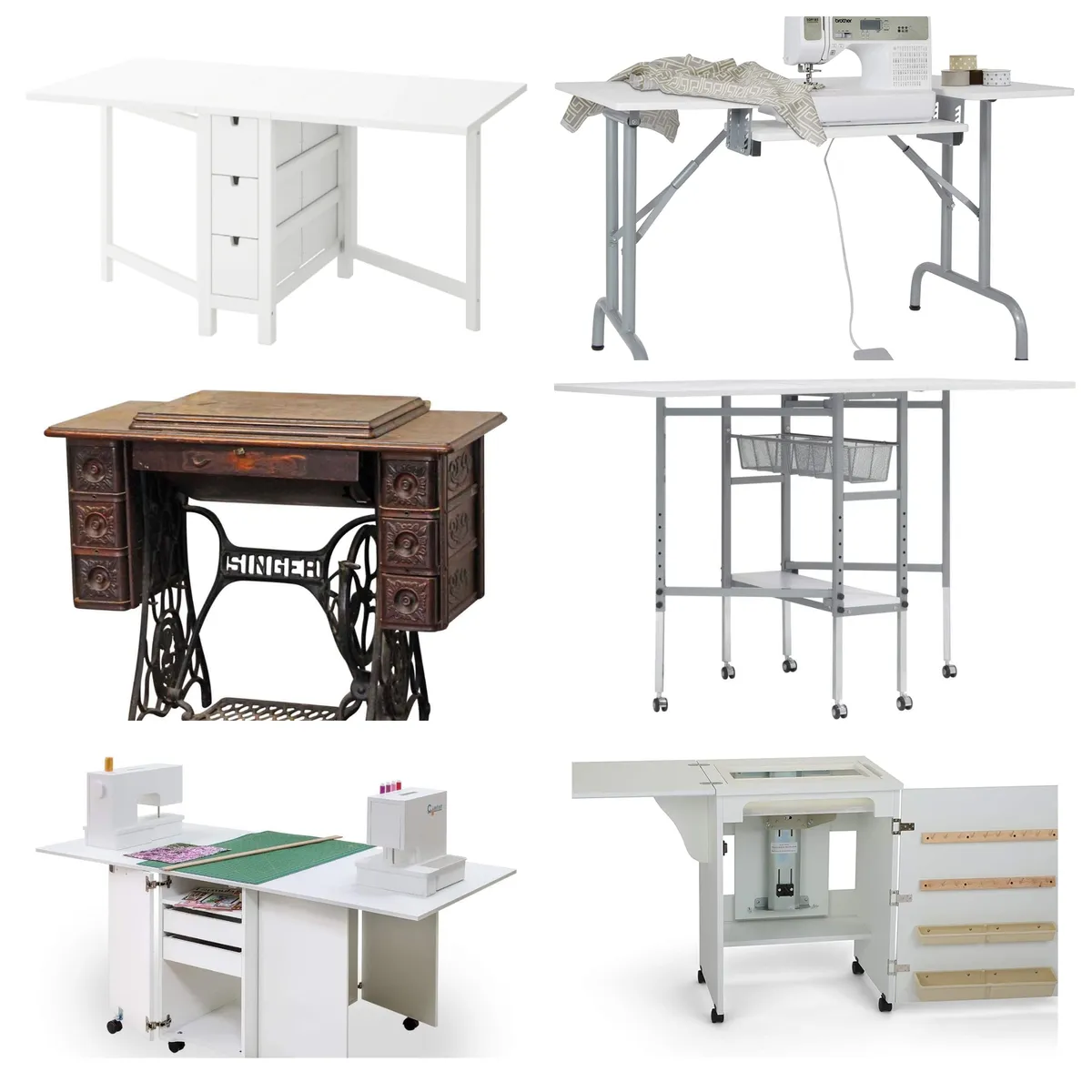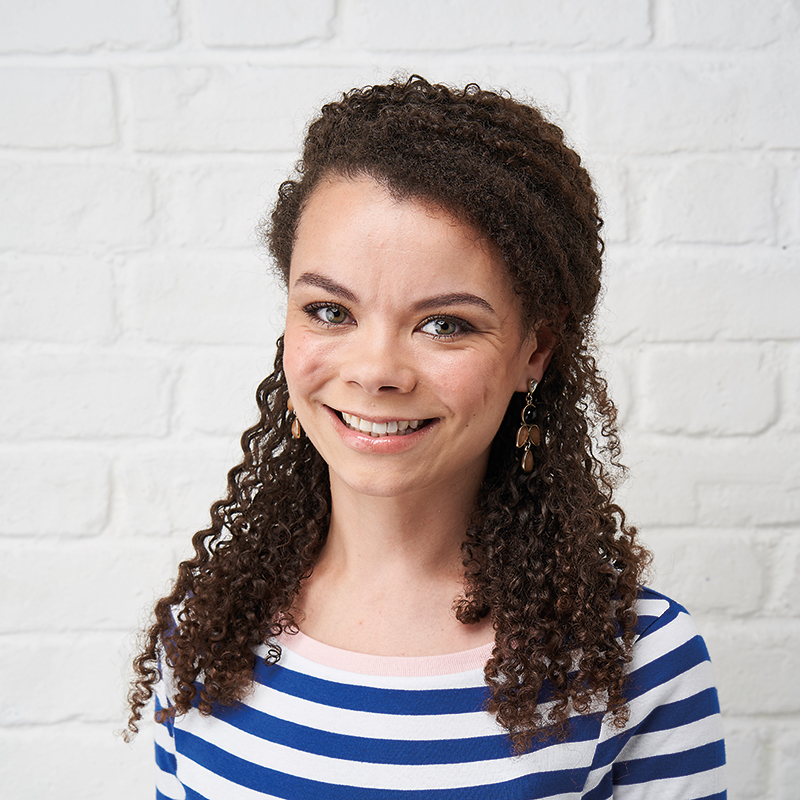Your essential sewing machine thread guide
So, you’ve chosen your fabric and are ready to start stitching – but have you got the right thread? Choosing the right sewing thread can make a big difference to your finished projects.
In this guide, we'll show you how to pick the best thread for your sewing machine and latest project.
There are so many varieties of sewing machine thread available that it can be tricky to choose the right one. It’s not just about finding a colour to match your fabric – you’ll need to consider other things, too, like the fabric’s thickness or stretch.
It’s worth taking the time to pick out the right thread. It’ll really make a difference to the stitching experience and your finished project.
On the lookout for a new sewing machine? Read our complete guide to the best sewing machines.
Choosing your sewing thread
Alongside your sewing machine and your fabric, thread is one of the most essential parts of any project. It can be tempting to overlook thread and use a bad quality one or a spool that you’ve had in your stash for years. However, using the correct thread for your project is important, as is using quality thread.
Many of us pick thread by simply matching the colour to our fabric. That’s important, but there’s more to it. Understanding the different types of thread, what they’re made from, and how they’re used is key to achieving a smooth, even stitch line.
An all-purpose polyester thread works well for most fabrics, but as a general rule, use the same type of thread as your material. For example, if you’re sewing with 100% cotton, choose 100% cotton thread and match the thread weight to your fabric.
Sometimes your sewing pattern or instructions will give you advice on which type of thread you should use. If you can’t find an exact colour match, choose a thread one to two shades darker than the fabric, as light thread will stand out more.
If you do a lot of work that requires perfectly matched colours, some thread companies sell shade charts which can help you to select the right one for your project. You will also need to consider the stretch of your fabric and how thick it is when selecting a thread.
Sewing thread quality
One of the most important things when it comes to purchasing thread is selecting a spool that is of good quality, ideally from a well-known brand.
Cheap multipacks of thread can be tempting, especially when they offer lots of colours. But a low-quality thread can snap easily in your machine and cause birds’ nests under your work. Quality thread doesn’t have to be expensive, and if it saves you hours at the sewing machine, it’s worth every penny.
How to read a spool
The end of the thread spool lists the fibre content, the manufacturer and colour number. It also may have its weight and the number of plies (strands) that are twisted together. This is usually listed with two numbers – the higher the first number, the finer the thread.
Finding the best sewing needle
Once you've chosen the right thread for the job, you'll also need to check that you're using the correct needle for best results. Find out everything you need to know in our sewing needle guide.
Types of sewing thread
There are several types of thread, which can be split into categories depending on what fibre they’re made from. Within these, there are different strengths (number of plies) and thicknesses (weights).
Cotton thread
The best thread for your sewing machine when making: delicate projects
Cotton thread has very little stretch, making it ideal for delicate projects and cotton or sheer fabrics, but not for anything stretchy. Most cotton thread is mercerised, meaning it has been treated to increase its lustre and improve water and dye absorption. As a result, it’s less likely to run in the wash.
Polyester/nylon thread
The best thread for your sewing machine when making: any kind of sewing pattern!
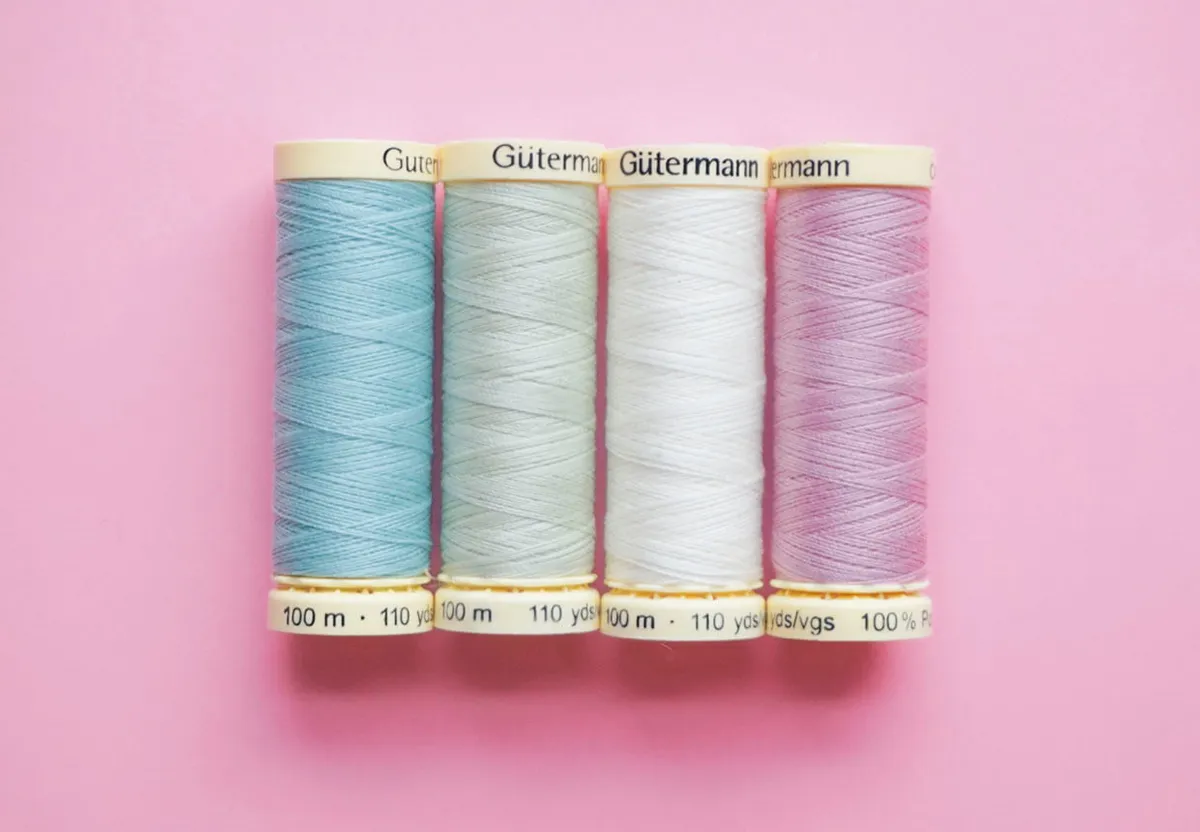
These are strong threads that have some stretch. They often have a wax or silicone finish that allows the thread to slip through the fabric with little friction. This thread is also suitable for stretch fabrics such as synthetics and knits.
Cotton-wrapped polyester thread can be used with most fabrics, too. Note that if you plan to dye the garment, polyester thread will not take the dye, unless it is a dye designed for polyester.
Gütermann 100% polyester thread is an all-purpose thread that comes in a vast choice of colours and is widely available. You can use it for machine sewing as well as hand stitching, and it will work with most fabrics.
Jeans thread
The best thread for your sewing machine when making: any denim projects
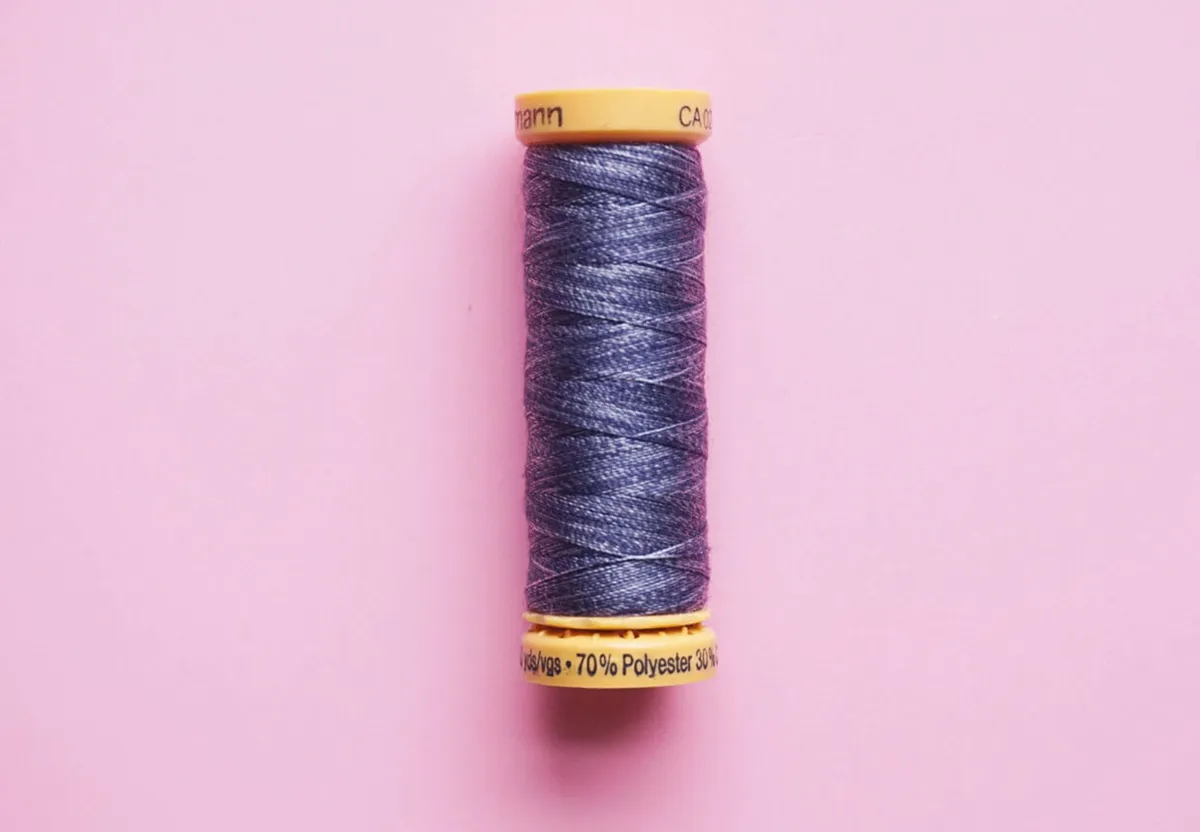
This Gutermann denim thread is designed to match the colour of blue denim and is a polyester cotton blend. It can be used to darn jeans by hand and is also a great one to add to your collection if you regularly turn up jeans or work with denim fabrics.
Overlocking cones
The best thread for your sewing machine when making: large projects like quilting patterns!
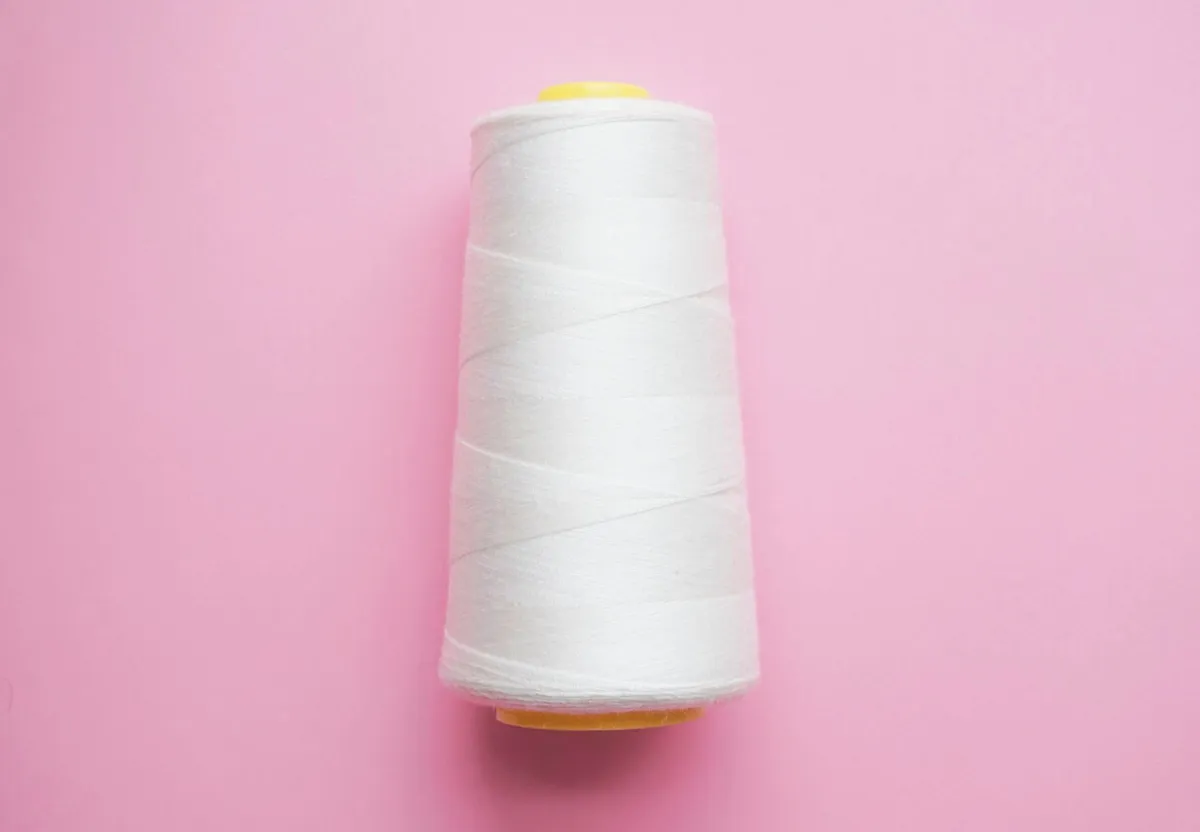
These large cones can contain 2,000–5,000 metres of thread on a cone. They are designed for working on overlockers and industrial machines, as they will need replacing less frequently than the smaller spools designed for domestic machines. If you are threading an overlocker, you will need four cones of thread in the same colour (similar colours can also be used if your overlocked edges won’t be visible).
An overlocker cone is usually too big for a standard sewing machine spool holder. To fix this, place a smaller spool of thread (around 1,000 m/yd) inside the larger cone. This lets the cone fit snugly on the holder.
Metallic thread
The best thread for your sewing machine when making: sparkly garments for parties!
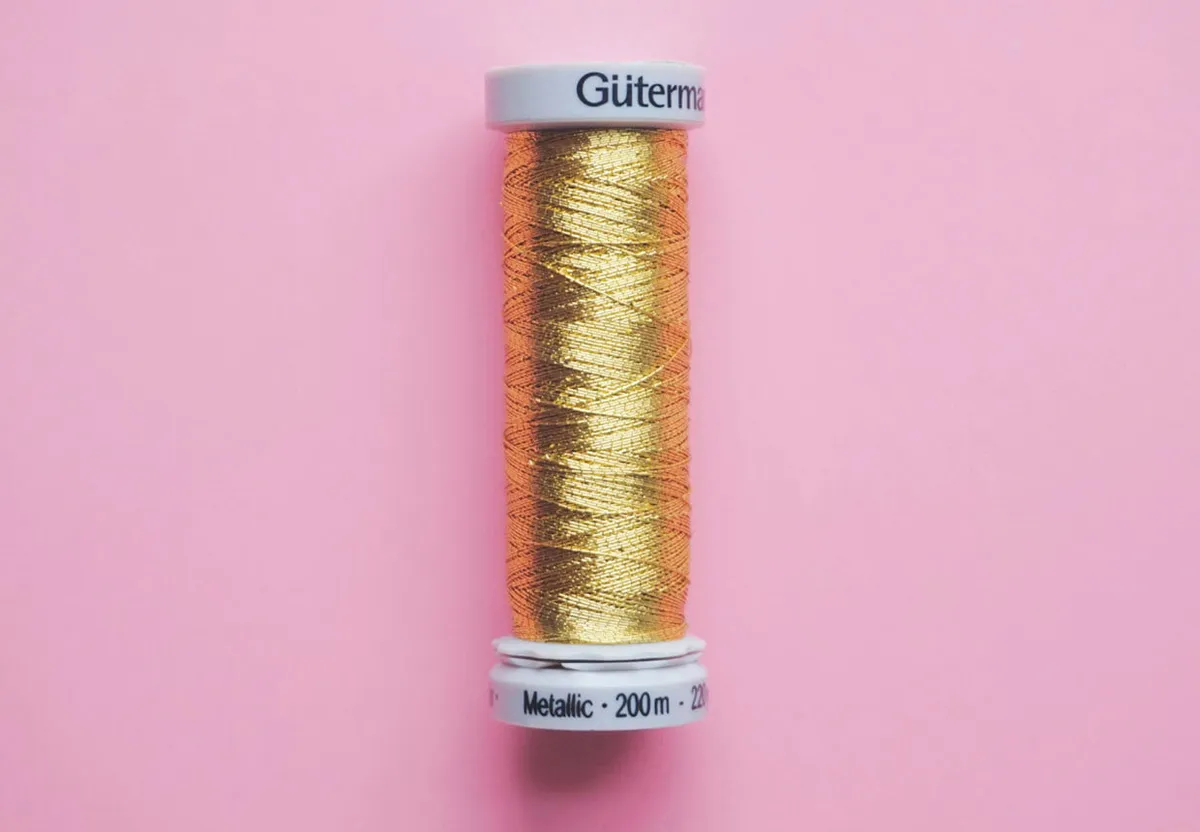
This Gütermann thread is made from metal (surprise!). These glitzy threads require a metallic needle as metallic needles have a larger eye, which won’t be worn away by the metal in the thread. Sew slowly as these threads are very delicate and can break very easily.
Shirring elastic
The best thread for your sewing machine when making: garments which need elastic
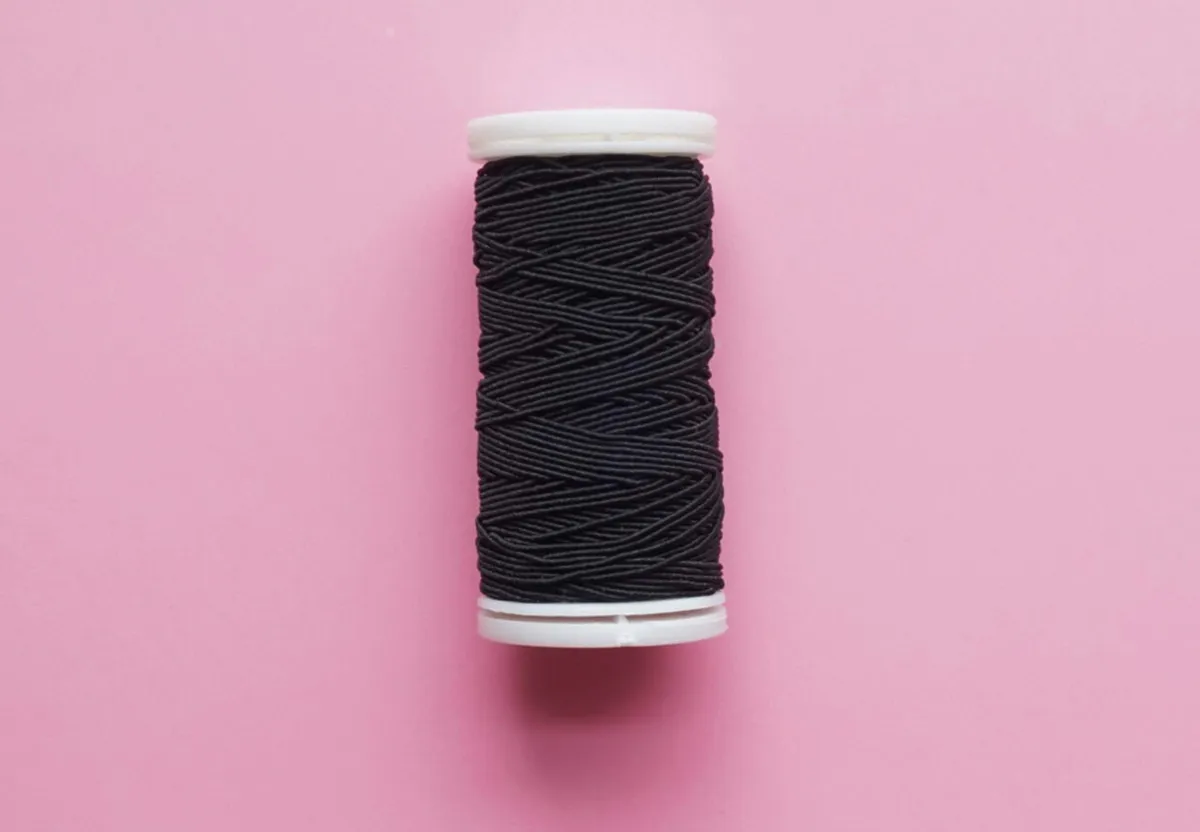
Shirring elastic is used to create multiple lines of elasticated stitching that draw in an area, usually across the bust or waist of a garment. The elastic needs to be wound onto your bobbin by hand to prevent too much stretching.
Clear thread
The best thread for your sewing machine when: working with light fabric or mending.
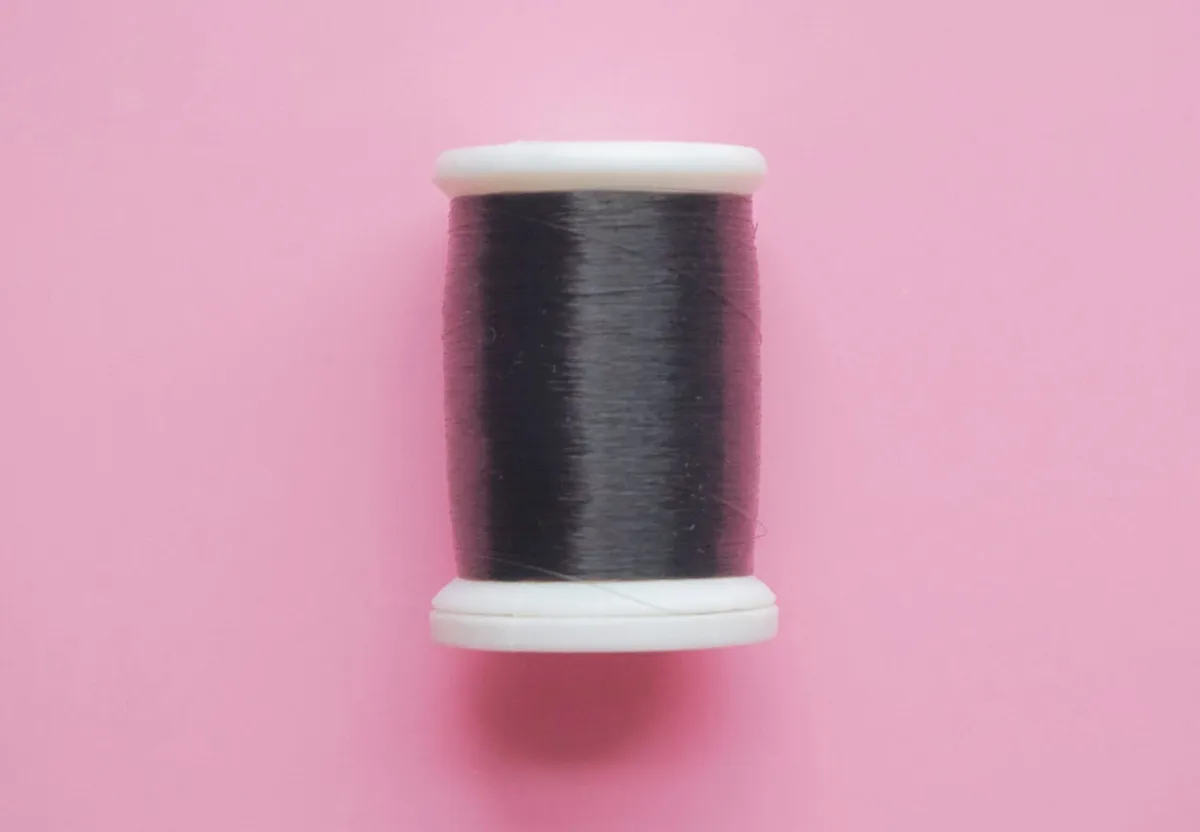
Clear/invisible threads are 100% nylon and blend invisibly with your fabric and other threads. These threads are available in clear and black. The clear thread is best used with lighter fabrics, while the black is best used with darker fabrics to blend in better.
Choosing the right sewing machine thread is important
Choosing the right thread for any sewing project takes thought, especially when using a sewing machine. It’s not just about matching the colour, you also need to consider fabric thickness and stretch.
Make crafting easier with a sewing machine table
Update your craft room by getting yourself a stylish new sewing machine table. Many sewing tables can also be used as desks if you're short of space.
Find the best sewing table for your needs.
